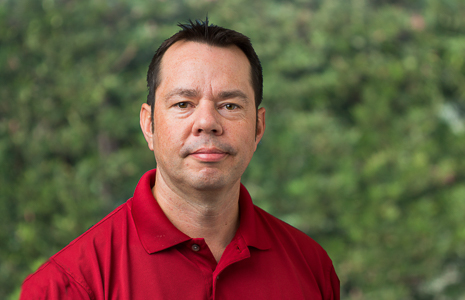Dr. Ulrich "Uli" Stingl
Assistant Professor
Microbial Ecology
Dr. Stingl's lab is focusing on analyzing and understanding the structure and function of aquatic microbial communities. In particular, he is interested in how microbial communities and key species respond to changing environmental conditions. In order to address these questions, the lab uses a wide array of tool in microbial ecology, including: novel cultivation techniques, cultivation-independent approaches, genomics and transcriptomics of pure cultures, meta-omics, microscopy, and microsensors.
-
Research
RESEARCH: Microbial Ecology of Aquatic Environments in South Florida
Southern Florida hosts many unusual and diverse aquatic ecosystems, including mangrove forests, swamps and wetlands, different types of natural and man-made lakes and waterways, coral reefs and open-ocean habitats. The importance of these habitats for the environment as well as for commercial and recreational purposes cannot be stressed highly enough. In all aquatic environments, prokaryotic microbes play a key role for the health and functioning of the ecosystem. Dr. Stingl is studying microbial community composition and function in aquatic environments in South Florida, using novel cultivation methods and cultivation-independent high-throughput sequencing tools, and is analyzing the impacts of sea level rise, Everglades restoration, and saltwater intrusion. This work is done in collaboration with colleagues at Florida International University in Miami.
RESEARCH: The turfgrass microbiome
Dr. Stingl studies microbial communities associated with turfgrasses in South Florida. The goals of these projects are 1) to identify core members of the turfgrass microbiome, 2) to elucidate the impact of different management practices on the structure and function of these microbiomes, and 3) to use beneficial microbes to replace or reduce the use of pesticides and fertilizers and thus to lower the environmental impact of turfgrass ecosystems. This work is done in collaboration with Dr. Schiavon and Dr. Hajihassani at FLREC.
RESEARCH: The seagrass microbiome
Dr. Stingl studies the structure and function of microbial communities associated with Thalassia testudinum (turtle grass), the most abundant seagrasses in South Florida and the Caribbean. Seagrass meadows fulfill important ecosystem services in coastal areas, including pivotal shore protection, acting as a habitat for fish nurseries, and providing food for many different aquatic species, including turtles and manatees. We are interested in 1) how environmental parameters shape host physiology and microbiome structure and function, and 2) how the plants interact with their microbiome to combat pathogens, including the protist Labyrinthula zosterae, which causes seagrass wasting disease.
-
Teaching
Under Development, please check back often.
-
Lab Team
-
Education
- Dr. rer. nat. (equivalent to Ph. D.), Biology. University of Konstanz, Germany, 2004
- Dipl. Biol. (equivalent to M.S.), Biology. University of Konstanz, Germany, 2001
- Publications

